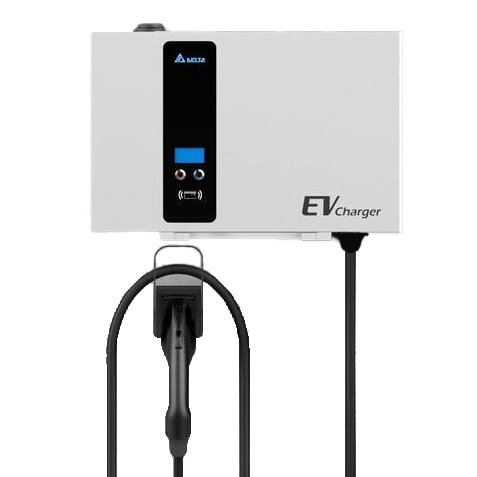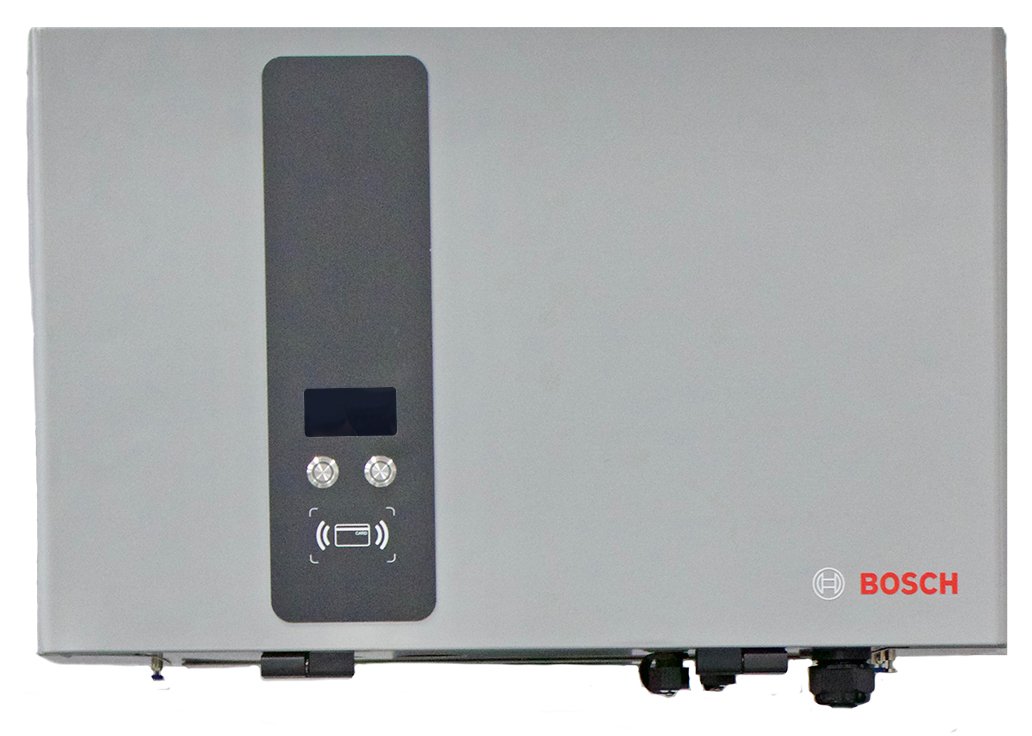Last Update: 2021-07-28T02:25:30.309Z
An ultra-long-range electric car may need DC Fast Charging support at home. Elsewhere we've said home charging can be slow charging and it's all fine. The cheapest home charging is a 1 kiloWatt station connected to a simple power outlet. (Installing cheap/inexpensive electric car charging at home) But of course there's a slippery slope, and we always want faster charging even if logic says slow charging at home is perfectly okay.
Most of the time we need to add enough range for the next days commute. An overnight 1 kiloWatt-rate charge adds about 40 miles, which is enough for most commutes. Bump that to 3 kiloWatts, and you can easily add 120 miles in an overnight charge, or enough for even a long-range commute. But there are times we arrive home with a fully depleted car, and adding 400 miles range at 1 kiloWatts would take 100 hours, or 33 hours at a 3 kiloWatt rate. Clearly inexpensive low-power AC charging won't serve some folks, especially those with an ultra-long-range electric car.
| Charge rate | Range per hour charging | Hours for 400 mile range car |
|---|---|---|
| 1 kiloWatt | 4-5 miles | 100 hours |
| 3 kiloWatt | 11 miles | 40 hours |
| 6 kiloWatt | 20-25 miles | 20 hours |
| 8 kiloWatt | 25-30 miles | 16 hours |
| 10 kiloWatt | 40 miles | 10 hours |
| 24 kiloWatt | 90-110 miles | 4-5 hours |
These numbers are rough estimates, though they're in the right ballpark.
Voice of Logic
Logically speaking the vast majority of folks will find even low power 1 kiloWatt or 3 kiloWatt charging to be perfectly acceptable at home. On 1 kiloWatt level 1 charging, an overnight charge gives 40 miles range which is adequate for most daily driving, and bumping it to 3 kiloWatts the overnight charge would give about 120 miles range.
For most of us it's desirable to minimize the cost of home charging equipment. Therefore a 1 kiloWatt or 3 kiloWatt rate, at home, is perfectly adequate, offering as much as 120 miles range in an overnight charging session.
See: Installing cheap/inexpensive electric car charging at home
Even for owners of a 300-400 mile range electric car, low powered home charging is perfect adequate, in most cases.
Logic, meet Psychology
Human actions rarely make logical sense. Instead we're driven by a whole sea of subconscious ideas.
Therefore some will develop the idea they NEED to recharge the car more quickly. The 400 mile range car we're discussing would take 40 hours or so at a 3 kiloWatt charge rate. That's a long time, and you can tell that person about range gained per hour of charging all day long, but they'll see that 40 hours recharge time as an insurmountable problem.
We have a lesson to draw from the Nissan Leaf. The first iteration had a 3 kiloWatt charge rate for a 7+ hour recharge time. That was okay at home but not okay at public charging. The switch to a 6 kiloWatt charge rate, and a 3-4 hour full recharge time, made the Leaf much more attractive.
In other words, a 3, 4, or 5 hour recharge time is desirable at home.
Logic, meet actual needs
There are people who truly do drive long distances every day.
- Mobile sales people, or technicians, are on the road all day carrying equipment and driving from place to place.
- Drivers for Uber/Lyft (or other car sharing services) can be on the road all day, ferrying people around.
- Those with truly long range commutes
- As fully autonomous cars become a reality, we might see people sleeping in their car while it drives them 2-3 hours to/from their job
In these cases access to fast charging is a necessity, even at home.
Does this mean it's desirable for a 400 mile range electric car to have DC fast charging at home? The 24 kiloWatt rate in this table is the low end of DC fast charging, and it seems somewhat feasible to support that charge rate at home.
Obviously for most of us an overnight 120 miles range at 3 kiloWatts, or 200+ miles range overnight at 6 kiloWatts, is more than adequate. Therefore most of us need nothing more than 6 kiloWatts support even for a 400 mile range electric car. For others of us, consider the following.
Available DC Fast Charging equipment suitable for home use
The following units are inexpensive DC charging stations that can be installed on a 240 volt single-phase AC circuit. That terminology means it can be installed "anywhere", so long as a 100+ amp circuit is available. This kind of product has great potential to broaden the use of DC charging.

 Delta EV Wallbox DC Fast Charger 25kW Commercial Charging Station - Single CCS Connector
Delta EV Wallbox DC Fast Charger 25kW Commercial Charging Station - Single CCS Connector
This DC Level 1 charging station is definitely non-portable, and seems meant for commercial use. DC Level 1 means it supports the lowest rate DC Fast Charging. It connects either to three-phase AC or single phase AC, the latter allowing for DC charging support at nearly any location in the US. Supporting 25 kiloWatts requires circuit capacity over 100 amps. The charging cord on this unit support only the Combo Charging System. The company sells another unit supporting both CCS and CHAdeMO. It can also integrate with renewable energy, such as solar power and wind power technology to provide the most energy saving infrastructure for EV system development
- Charge Rate: 25 kiloWatts - roughly 100+ miles range per hour of charging

 Bosch 25kW DC Fast Charger
Bosch 25kW DC Fast Charger
This DC Level 1 charging station is definitely non-portable, and seems meant for commercial use. It connects to single phase AC, allowing for DC charging support at nearly any location in the US. Supporting 25 kiloWatts requires circuit capacity over 165 amps, which is a hefty requirement.
- Charge Rate: 25 kiloWatts - roughly 100+ miles range per hour of charging



